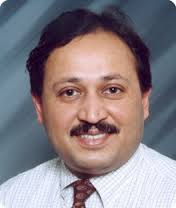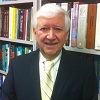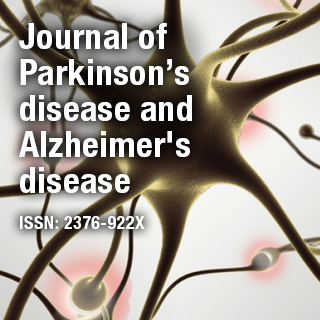Editorial Board

is a Director Metabolomics Unit, Professor, Pharmacology at Lincoln Memorial University, USA. His research interests include utilization of high resolution metabolomics & lipidomics to study disease pathogenesis via integration of data from animal models, patient fluids and cell lines and autopsy tissues. Areas of focus include Alzheimer’s disease, autism, glioblastoma, peroxisomal disorders.

is Dean of the School of Gerontology and Professor of Molecular Biology from the University of Southern California, USA. His research is on regulation of gene expression in oxidative stress; degradation of oxidatively damaged proteins by the Proteasome & the mitochondrial Lon protease and mitoptosis in oxidative stress; role of oxidative stress in the aging process.

is a Neurologist, Chairman and President of the Parkinson’s Association of Los Angeles, Southern California Movement Disorder Specialists, USA. His research focuses on Parkinson’s disease, Cervical Dystonia, Programming & intraoperative monitoring of deep Brain Stimulators & Botulinum Toxin Injections. He is involved in many ongoing national clinical research trials in Parkinson disease.

is a professor of Neuroscience in the Neuroscience Center of Excellence at the Louisiana State University Health Sciences Center in New Orleans, USA. His current research focuses on elucidating molecular mechanisms causing neurodegenerative processes & developing novel therapeutic interventions for prevention,treatment of neurodegenerative diseases, including Alzheimer’s disease.

is a Professor of Neurology at UMass Medical School and Stroke Services Director at UMass as well as the vascular program, USA. He is a stroke specialist, board certified in neuropsychiatry and sleep medicine as well as general neurology.

is the current chairwoman of the Department of Biochemistry and Molecular Biology, The Hebrew University of Jerusalem, Israel. Her research focuses on physiological & pathogenic aspects of alpha-synuclein associations with brain lipids, specifically related to mechanisms of neuronal function & dysfunction.

is a professor of Neurology, Psychiatry, Neuroscience, Geriatrics and Adult Development at the Icahn School of Medicine at Mount Sinai, USA. He is the Chief of the Brain Institute Center of Excellence for Novel Approaches to Neuro diagnostics & therapeutics. His principal focus on prevention of Alzheimer’s disease & other neurodegenerative disorders.

is a professor in School of Medical Sciences at University of Aberdeen, UK. His research focuses on neuropathological changes in Parkinson’s disease. His innovative research approaches also led to the successful granting of patent for a possible neuroprotective treatment for neurodegenerative diseases.

is a professor at Boise State University, USA. His research focuses on the role that certain proteases play in promoting the pathology associated with different neurodegenerative diseases &has begun to assess the proteolytic consequences of ApoE4, a major genetic risk factor in Alzheimer’s. Involved in policy related to AD &recently helped pass a statewide strategic plan through the Idaho

is a Professor/Associate Chair for Research in the Department of Regenerative Medicine & Neurosciences at the Medical University of South Carolina, USA. His area of expertise is neurodegenerative disorders, animal modeling, mechanisms associated with diseases & regeneration of the brain.

is a Professor and Chair in the Department of Chemistry at University of Miami, Florida, USA. His current research interest is to apply 2-dimensional (2-D) surface chemistry combined with spectroscopy and microscopy to investigate properties and fibrillation of amyloidogenic proteins, such as amyloid-beta peptide, islet amyloid polypeptide (IAPP), alpha-synuclein, and insulin.

is a Professor at Loughborough University, UK. Her research includes the use of standardized questionnaires to investigate risk & protective factors for dementia & age-related cognitive decline. Also involved in exercise, sex steroid and nutritional treatment programs to improve cognitive function & mood in the elderly.

is a Professor and Head in the Department of Neurology, Kansas University Medical Center, USA. His research focuses on new mechanisms of neurodegeneration in glaucoma and Role of synoretin and other synucleins in the pathogenesis of Alzheimer’s disease. The goal of this proposal was to study how synucleins interact with other proteins in Alzherimer’s Diseases.

is a professor in Molecular basis of Neurodegeneration at Kings college London, UK. They aim to uncover the precise impact of glycation on the aggregation of key proteins that are linked to diabetes &to neurological conditions that are often seen in people with diabetes, influence of glycation on protein & aggregate structure & behaviour, aggregation pathways.

is a Director for Stroke Research and Brain Repair and Associate Professor in the Dept. of Neurosurgery,SUNY Upstate Medical University, USA. Her research Focuses on investigating the pathogenesis and pathological features of stroke, Alzheimer’s disease, CADASIL, and traumatic brain injury, and exploring new therapeutic strategies for repairing the injured or disease-damaged brain.

is an Associate Professor at The Florey Institute of Neuroscience and Mental Health from University of Melbourne, Australia. His research focuses in understanding the critical roles played by Zn at the synapse, its regulation. This zinc-mediated modulation of synaptic plasticity has downstream relevance to a number of different research foci including both normal and pathological ageing.

is an Associate Professor in the University of North Dakota, USA. His research is focusing on identifying the cellular and molecular mechanisms underlying neuropeptides-induced neural modulation in the brain and testing the possibilities of using modulators of neuropeptide receptors for treating neurological diseases such as anxiety, epilepsy, Alzheimer’s disease, Parkinson’s disease.

is an Associate Professor at The Commonwealth Medical College also the Research Director at the Northeastern Pennsylvania Memory & Alzheimer’s Center, USA. He currently is the principal investigator in 5 clinical trials studying new disease modifying agents for the treatment of AD & prodromal Alzheimer’s disease.

is an Associate Professor from School of Biomedical Sciences, The Chinese University of Hong Kong, Hong Kong, China. Her research interests are in the etiology, early diagnosis and pathogenesis of Parkinson’s disease and Alzheimer’s disease, and the search of novel treatments. She is also interested in research on stroke and other forms of brain damage.

is an Associate Professor at the Center for Functionally Integrative Neuroscience at Aarhus University & Clinical Senior Lecturer in Neurology at Imperial College London, UK. His research activity focuses on the use of PET imaging to study the neuropharmacology,neurochemistry of movement disorders & other neurodegenerative diseases.

is an Associate professor of Neuroscience in the Department of Pathology at the University of Melbourne in Australia. His research focuses on the molecular pathways that lead to onset and progression of developmental and adult neurodegeneration, therapeutic intervention in neurodegenerative diseases using metal-based drugs for treatment of Alzheimer’s disease, Parkinson’s disease.

is an Associate Professor in the Department of Neurology, Duke University, USA. Her research focuses on genetic factors & molecular mechanisms underlying age-related neurodegenerative diseases, dementia, gene-expression analyzes to studying non-coding regulatory variants within disease-associated regions in the human genome, with special interest in AD & PD.

is an Associate Professor in the Department of Radiology and Imaging Sciences at Indiana University School of Medicine, USA. His research interest is design, synthesis and biological evaluation of new radiopharmaceuticals (brain, tumor and heart imaging agents) for use in the biomedical imaging technique positron emission tomography (PET) to study brain, cancer and heart diseases.

is an Associate Professor of Neurology at Icahn School of Medicine at Mount Sinai, New York, USA. The research interests are in the area of neurological disorders such as dystonia, Parkinson’s disease & other neurodegenerative disorders. Studies include generating in vivo & in vitro models of neurological disorders & exploring the underlying mechanisms.

is an Associate Professor at Georgia Regents University, USA with joint appointments at the School of Graduate Studies, Allied Health Sciences Institute of Neuroscience & Vision Discovery Institute and Georgia Regents University. He is also a Director of the department’s of the Human Movement Science lab. His expertise is related to the areas of aging, neurological diseases.

is an Associate Professor of Experimental Neurology, in the Department of Neurology, Hadassah Hebrew University Medical Center, Jerusalem, Israel. Her scientific research focuses mainly on tauopathies and Alzheimer’s disease, developing novel animal models using genetic, autoimmune and genetic/environmental interactive approaches.

is an Assistant professor in African American Alzheimer’s disease research study and the Center for Outreach in Alzheimer’s, Aging and Community Health at North Carolina A&T State University, USA. Her research goals include improving Alzheimer’s disease literacy in underserved communities, improving health access for individuals with dementia & their care givers.

is an Assistant Professor in the department of Neurology and Director of Movement Disorders, Rutgers New Jersey Medical School and Co-Director of the center for Neuromodulation, USA. She serves as a part of our Deep Brain Stimulation Team and performs botox injections for neurologic related spasticity.

is an Assistant Professor at University of Florida, USA. His research interest focuses on the role of prostaglandin receptors in animal models of neurodegeneration, determine the role of prostaglandin receptors in 6-OHDA and MPTP-induced Parkinsonism in mice and determine the role of heme oxygenase/Nrf2 in neurodegeneration.

is an Assistant Professor at the Center for Neurosciences, Feinstein Institute for Medical Research, NY, USA. His research focuses on utilizing PET imaging related to motor&cognitive symptoms in neurodegenerative diseases, multi-network imaging biomarkers for accurate differential diagnosis of early patients with Parkinsonism. Also extended his research to AD & other dementia-related disorders.

is an Assistant Professor in the Department of Basic Sciences at University of North Dakota School of Medicine & Health Sciences, USA. His research interest focuses on investigating the role of endolysosomes in the pathogenesis of neurodegenerative diseases including Alzheimer’s disease, HIV-1 associated neurocognitive disorders and Parkinson’s disease.

is an Assistant professor at Oregon Health & Science University, USA. Research focuses on center around the genetic variation associated with AD & other neurodegenerative disorders & identifying the genetic variation seen in two alternatively spliced isoforms of the ITSN1 gene which may be responsible for the upregulation in gene expression seen in Alzheimer brain.

is an Assistant professor at Georgia Southern University, USA. Her research examines risk factors, potential new treatments and evaluations for neurologic conditions. She has extensive experience in the design, management and analysis of observational and interventional studies for conditions including tremor, Parkinson’s disease and ataxia.

is an Assistant professor,Department of Neurology at University of Washington, USA. Her research focuses on the mechanisms of brain cell damage in white matter after stroke,developed a program specializing in how injury of the CNS white matter relates to stroke & aging,studies provide insights into other conditions affecting white matter,TBI, age-related dementia & Alzheimer’s disease.

is an Assistant Professor in the Department of Neurology at the University of Maryland, USA He is a Research Microbiologist at Veterans Affairs Medical Center, Baltimore, USA. He is the member of the Society for Neuroscience, American Academy of Neurology, Experimental Biology.

is Researcher at the Institute of Neuroscience & Physiology in Department of Psychiatry & Neurochemistry, University of Gothenburg, Sweden. Her objective is open up her own pharmaceutical company specializing in biomarker discovery, related to enzymes as biosensors and the use of nanovehicles e.g. endogenous protein or lipid based particles that have regenerative properties.

is a Research associate scientist at University of Cambridge, UK. Her research focuses on understanding the genetic and molecular mechanisms that underlie neurodegenerative disorders associated with protein misfolding and aggregation, with a focus on Huntington’s disease, Parkinson’s disease and tauopathies.

is a Research Scholar, Department of Pharmacy, Southeast University, Dhaka, Bangladesh. His research interest is how neuronal communication can be manipulated by neurochemicals to manage Alzheimer’s disease. He has developed and validated five methods of neuropsychopharmacology for the determination of attention, memory and cognition in human.

is currently working at the Department of Psychiatry and Behavioral Sciences at Stanford University in USA as well as the Florey Institute for Neuroscience in Australia. His research is focused on using optogenetic methods, new age imaging techniques & electrophysiological tools to determine how specific neuronal populations and its projections could be susceptible in AD & PD.

is currently working in the Disease Epigenetics group at the MCRI, University of Melbourne, Australia. Her research interests are in biological neuropsychiatry, focused on the role of the HPA and HPG-axis in affective disorders and later-life cognitive function (in particular Alzheimer’s disease).

is currently working in the Department of Geriatrics & Gerontology at Rowan University–SOM. His research is focused on the effects of aging, Alzheimer’s on the brain vasculature, also investigating BBB breakdown as a link between post-surgical delirium & cognitive decline leading to AD & are developing blood-based diagnostic tests for Alzheimer’s & Parkinson’s diseases.

is working as a researcher at Center of Nuclear Receptors and Cell Signaling, University of Houston, USA. His current research work is on the treatment effect of neural stems cells transfected with HIF-1a gene for ischemic stroke in rats and is also focused on the migration mechanism of neural stem cells after ischemic stroke.


